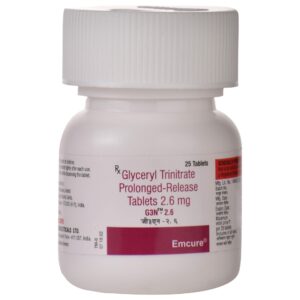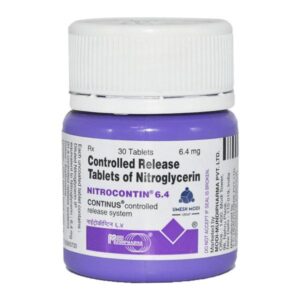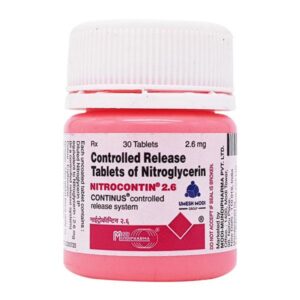GLYCERYL TRINITRATE
GLYCERYL TRINITRATE: Drug Name: Glyceryl Trinitrate
Use: Glyceryl Trinitrate is mainly used to treat and prevent episodes of angina (chest pain) in individuals with coronary artery disease. It can also be used as a vasodilator in the management of congestive heart failure, acute heart attack, and hypertensive crises.
Mechanism of Action: Glyceryl Trinitrate is a potent vasodilator that works by relaxing and widening the blood vessels, primarily in the veins. It reduces the workload on the heart by decreasing venous return, preload, and ultimately myocardial oxygen consumption.
Dose: The usual recommended dose of Glyceryl Trinitrate for angina is 0.3 to 0.6 mg sublingually (placed under the tongue) or as a spray. The dose may be repeated every 5 minutes if necessary, up to a maximum of 3 doses within 15 minutes. For the management of acute heart attack, Glyceryl Trinitrate can be administered through an intravenous infusion starting with a low dose and gradually increasing as needed.
Side Effects: Common side effects of Glyceryl Trinitrate may include headaches, dizziness, lightheadedness, flushing, and a rapid heartbeat. These symptoms are generally mild and transient. Less common side effects may include hypotension (low blood pressure), nausea, vomiting, blurred vision, and skin rash. Rare but serious side effects can include severe hypotension, syncope (fainting), and methemoglobinemia (a blood disorder). Overuse or prolonged use of Glyceryl Trinitrate may lead to the development of tolerance or rebound angina.
It is crucial to consult a healthcare professional before starting or adjusting the dosage of Glyceryl Trinitrate, as they can provide individualized guidance based on the patient’s condition and other medications they may be taking.



